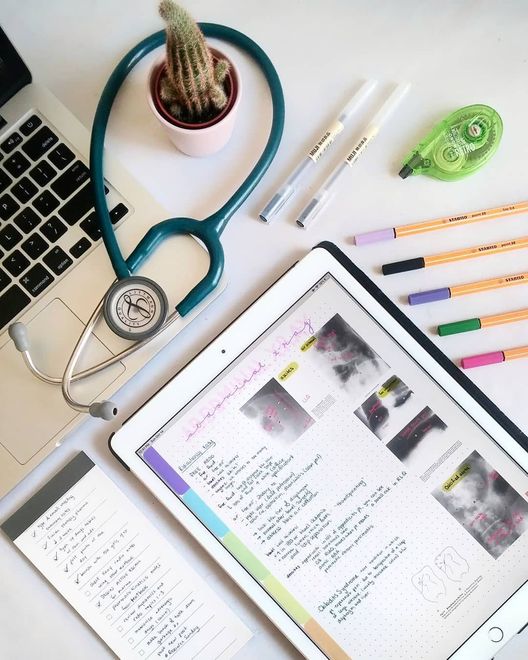United Kingdom Medical Licensing Assessment (UKMLA) or Medical Licensing Assessment (MLA)
In June 2015, the General Medical Council announced that all doctors who wish to work in the UK will have to sit a standard test to determine whether they are fit t o practise. This applies to UK medical students as well as international doctors. The test is known as the United Kingdom Medical Licensing Assessment (UKMLA)
or the Medical Licensing Assessment (MLA). This sets a common threshold for safe medical practice in the UK.
Similarly, in the United States, the United States Medical Licensing Examination (USMLE) is required for medical licensure in the US by all American medical students as well as international medical graduates.

When do I need to take the MLA?
All medical students graduating from UK universities from the academic year 2024–25 onwards will be required to pass the MLA as part of their degree before they can join the medical register.
International doctors who want to practise in the UK and who currently take PLAB will need to take the MLA from 2024.
Format of the Medical Licensing Assessment (MLA)
- The MLA will be set and delivered by:
- UK medical schools for medical students in their penultimate or final year of undergraduate education.
- General Medical Council (GMC) for international medical graduates (IMGs) who wish to practise medicine in the UK.
- The MLA is a two-part test:

What will be assessed in the Medical Licensing Assessment (MLA)?
All content in the MLA will derive from the MLA content map
This is underpinned by three themes:
- Readiness for safe practice
- Managing uncertainty
- Delivering person-centred care
And six sections, called domains:
- Areas of clinical practice, such as mental health and surgery.
- Areas of professional knowledge, such as biomedical sciences and medical ethics and law.
- Clinical and professional capabilities, such as assessing and managing risk and safeguarding vulnerable patients.
- Practical skills and procedures, as set out in the list of practical skills and procedures that supplements the GMC Outcomes for graduates (2018)
- Patient presentations, which relates to signs, symptoms, investigation results and other relevant patient-related issues typically seen by doctors in a first appointment within the UK Foundation Programme. For example, a chronic rash or breast lump.
- Conditions, which are pathophysiological diseases or clinical diagnoses typically seen by doctors in a first appointment within the UK Foundation Programme. For example, asthma and eating disorders.
For UK Medical Students
UK medical students graduating in the academic year 2024-25 or beyond, will need to have passed the Medical Licensing Assessment (MLA) as part of their medical degree before they can join the medical register.
The assessment involves a two-part test made up of an applied knowledge test and a clinical and professional skills assessment. Both parts are sat at the medical school on dates chosen by them.
- Applied knowledge test (AKT)
- This will be an on-screen multiple-choice exam, run by medical schools.
- It will test application of medical knowledge to different scenarios.
- Clinical and professional skills assessment (CPSA)
- This is an assessment of clinical skills and professional skills, which will be set and run by the medical school will set and run.
- Each medical school calls the CPSA something different - for example, an Objective Structured Clinical Examination (OSCE) or Objective Structured Long Examination Record (OSLER) but there will be common requirements that all CPSAs must meet.

For International Medical Graduates
During 2024, international medical graduates who want to practise in the UK and who currently take PLAB will start to take the MLA instead.
The assessment involves a two-part test made up of an applied knowledge test and a clinical and professional skills assessment.
- Applied knowledge test (AKT)
- This will be an on-screen multiple-choice exam set by the GMC.
- It will test ability to apply medical knowledge to different scenarios similar to the current PLAB 1 exam.
- The test will run four times a year for international candidates, at a number of locations worldwide, as it currently does for PLAB 1.
- The AKT will need to be passed before can take the clinical and professional skills assessment (CPSA) can be attempted.
- Clinical and professional skills assessment (CPSA)
- This will be an objective structured clinical exam (OSCE).
- It will involve scenarios that reflect real life settings, including a mock consultation or an acute ward.
- The CPSA for international medical graduates will be run at the GMC’s clinical assessment centre in Manchester. The CPSA will be similar to the current PLAB 2 exam.
English language requirements
- The MLA won't change the English language requirements for registration. International graduates will still need to prove they have the necessary knowledge of English to practise safely in the UK.
Phased introduction of the MLA
- Until the MLA is introduced in 2024, international medical graduates can still apply for the PLAB test if they want registration with a licence to practise in the UK.
- The information below explains what will happen if you have sat one or both parts of the PLAB test when the MLA is introduced:
- Passed both parts of the PLAB test
- This won't change: the same as now, you'll need to have your application for registration with a licence to practise in the UK to be approved within two years of passing PLAB 2.
- Passed PLAB 1 but not attempted PLAB 2
- If you have passed PLAB 1, instead of taking PLAB 2 you’ll take the CPSA. You’ll need to pass this within your PLAB 1 validity period, which is currently three years.
- When you pass the CPSA, you'll be able to apply for registration with a licence to practise. You'll need your application to be approved within two years of passing the CPSA.
- Attempted PLAB 1 but not passed it
- You'll be able to sit the AKT. There will be a maximum number of attempts and any previous attempts at PLAB 1 will count towards the maximum number.
- When you pass the AKT, you will need to take the CPSA within the AKT validity period.
- Passed PLAB 1 and attempted PLAB 2, but not passed
- You won’t need to take the AKT if your PLAB 1 pass is still valid. Currently, a PLAB 1 pass is valid for 3 years.
- You'll be able to take the CPSA. There will be a maximum number of attempts and any previous attempts at PLAB 2 will count towards the maximum number.
- When you pass the CPSA, you'll be able to apply for registration with a licence to practise. You'll need to do so within two years of passing the CPSA.
